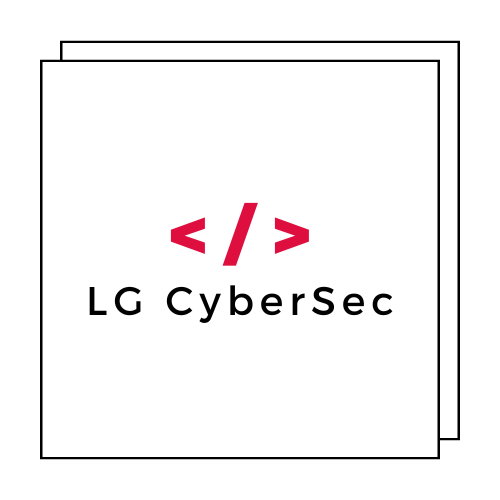In a stark reminder of the escalating cybersecurity threats facing businesses worldwide, Vietnam Airlines recently confirmed a devastating data breach that compromised over 7.3 million customer accounts. This massive security incident, which came to light in October 2025, serves as a critical wake-up call for small and medium-sized businesses (SMBs) and consumers alike about the urgent need for robust cybersecurity measures.
The Vietnam Airlines breach represents one of the most significant aviation industry cyberattacks in recent years, highlighting vulnerabilities that extend far beyond large corporations. As cybercriminals become increasingly sophisticated, no organization—regardless of size—is immune to these threats.
Understanding the Vietnam Airlines Data Breach
The Vietnam Airlines data breach occurred through a compromised third-party customer service platform operated by a global technology provider. According to recent reports, the breach was linked to a broader cyberattack orchestrated by the notorious hacking group ShinyHunters.
The compromised data included sensitive passenger information such as:
- Full names and contact details
- Email addresses and phone numbers
- Booking reference numbers
- Flight history and travel patterns
- Passport information in some cases
What makes this breach particularly concerning is that it wasn’t a direct attack on Vietnam Airlines’ systems but rather on a third-party service provider. This highlights a critical vulnerability that many businesses overlook: the security risks associated with external vendors and partners.
The Growing Threat Landscape: Why SMBs Are Prime Targets
While the Vietnam Airlines incident involved a major corporation, the implications for SMBs are profound. Small and medium-sized businesses are increasingly becoming primary targets for cybercriminals due to several factors:
Limited Security Resources: Unlike large enterprises, SMBs often lack dedicated cybersecurity teams and comprehensive security infrastructure. This makes them easier targets for opportunistic attacks.
Third-Party Dependencies: Many SMBs rely heavily on external service providers for various business functions, creating multiple potential entry points for attackers. The Vietnam Airlines breach demonstrates how these relationships can become security liabilities.
High-Value Data: SMBs often handle valuable customer data, financial information, and intellectual property that cybercriminals find attractive. According to cybersecurity experts, groups like ShinyHunters specifically target organizations with large databases of personal information.
The aviation industry has been particularly vulnerable, with 71% of cyber attacks in the sector focused on stealing login credentials to gain unauthorized access to systems and data.
Critical Cybersecurity Lessons from the Vietnam Airlines Breach
The Vietnam Airlines incident offers several crucial lessons that SMBs and consumers must heed to protect themselves from similar attacks:
Third-Party Risk Management
The breach originated from a third-party vendor, highlighting the critical importance of supply chain security. SMBs must implement robust vendor assessment processes that include:
- Regular security audits of all third-party providers
- Contractual requirements for cybersecurity standards
- Continuous monitoring of vendor security practices
- Clear incident response procedures for vendor-related breaches
Data Minimization and Protection
Organizations should adopt a data minimization approach, collecting and retaining only the information absolutely necessary for business operations. This reduces the potential impact of any security incident.
Multi-Layered Security Architecture
The breach underscores the need for defense-in-depth strategies that don’t rely on single points of security. Even if one layer fails, additional security measures should prevent or limit the impact of an attack.
Essential Protection Strategies for SMBs and Consumers
In light of the Vietnam Airlines breach and the evolving threat landscape, businesses and individuals must implement comprehensive protection strategies:
For Small and Medium-Sized Businesses
Employee Education and Training: Human error remains one of the leading causes of data breaches. Regular cybersecurity training should cover phishing awareness, password security, and safe computing practices.
Access Control and Authentication: Implement multi-factor authentication (MFA) across all business systems and enforce the principle of least privilege, ensuring employees only have access to data necessary for their roles.
Regular Security Assessments: Conduct periodic vulnerability assessments and penetration testing to identify and address security weaknesses before attackers can exploit them.
Incident Response Planning: Develop and regularly test a comprehensive incident response plan that outlines steps to take in the event of a security breach, including communication protocols and recovery procedures.
For Individual Consumers
Password Hygiene: Use unique, complex passwords for each account and consider implementing a reputable password manager to maintain security without sacrificing convenience.
Account Monitoring: Regularly monitor financial accounts and credit reports for suspicious activity, especially if you’ve been affected by a data breach like the Vietnam Airlines incident.
Information Sharing Awareness: Be cautious about the personal information you share online and with businesses, considering whether each piece of data is truly necessary.
The Role of Professional Cybersecurity Services
The complexity and scale of modern cyber threats make it increasingly difficult for SMBs to maintain adequate security without professional assistance. Managed cybersecurity services can provide SMBs with enterprise-level protection at a fraction of the cost of building an in-house security team.
Professional cybersecurity providers offer several key advantages:
- 24/7 monitoring and threat detection
- Access to advanced security tools and technologies
- Expertise in emerging threats and attack vectors
- Compliance support for industry regulations
- Incident response capabilities
Organizations like LG CyberSec specialize in providing comprehensive cybersecurity solutions tailored specifically for SMBs, helping them navigate the complex security landscape without breaking their budgets.
Looking Ahead: Building Cyber Resilience in 2025 and Beyond
As we continue through 2025, the Vietnam Airlines breach serves as a powerful reminder that cyber resilience must be a top priority for organizations of all sizes. The threat landscape will only continue to evolve, with cybercriminals developing new attack methods and targeting previously overlooked vulnerabilities.
SMBs must adopt a proactive approach to cybersecurity that includes:
Continuous Improvement: Regularly update and enhance security measures based on emerging threats and lessons learned from incidents like the Vietnam Airlines breach.
Industry Collaboration: Participate in information sharing initiatives and stay informed about threats targeting your specific industry.
Investment in Security: Allocate appropriate resources to cybersecurity, viewing it as a business enabler rather than just a cost center.
Cultural Change: Foster a security-first culture where cybersecurity considerations are integrated into all business decisions and processes.
Conclusion: Taking Action to Protect Your Organization
The Vietnam Airlines data breach affecting over 7.3 million accounts serves as a stark reminder that cybersecurity is not optional in today’s digital landscape. Whether you’re running a small business or managing personal data as a consumer, the lessons from this incident are clear: comprehensive cybersecurity measures are essential for protecting sensitive information and maintaining trust.
For SMBs, the key is to recognize that cybersecurity is not just about preventing attacks—it’s about building resilience that enables your business to continue operating even in the face of security incidents. This requires a combination of technology, processes, and people working together to create a robust defense against evolving cyber threats.
Don’t wait for a breach to impact your organization. Take proactive steps today to assess your current security posture, implement appropriate protection measures, and consider partnering with cybersecurity professionals who can help you navigate this complex landscape.
The cost of prevention is always less than the cost of recovery. In an era where data breaches can result in significant financial losses, regulatory penalties, and reputational damage, investing in robust cybersecurity measures is not just smart business—it’s essential for survival in the digital age.
Stay informed about the latest cybersecurity threats and protection strategies by following industry news and working with trusted security partners who understand the unique challenges facing SMBs in today’s threat landscape.

